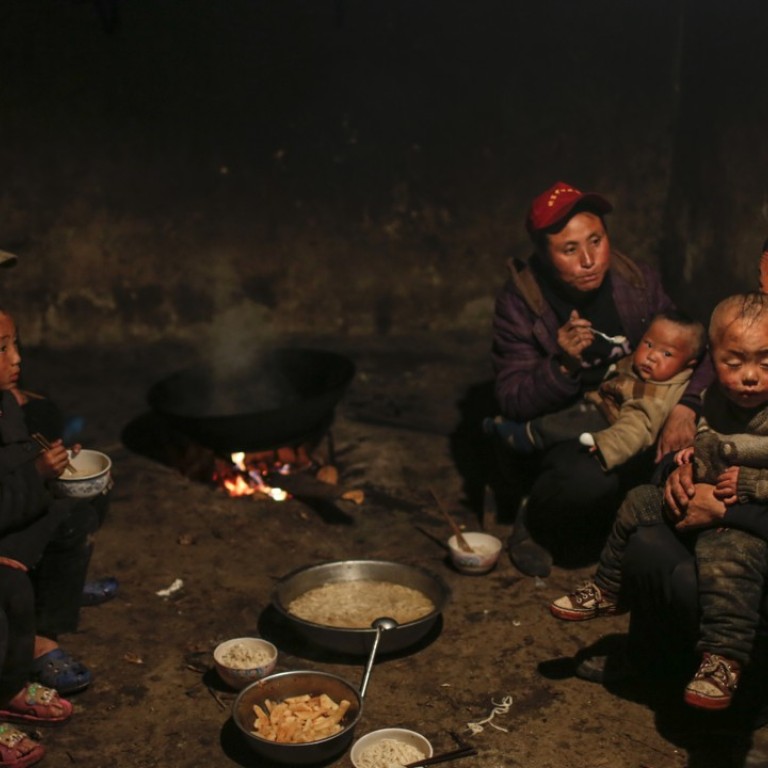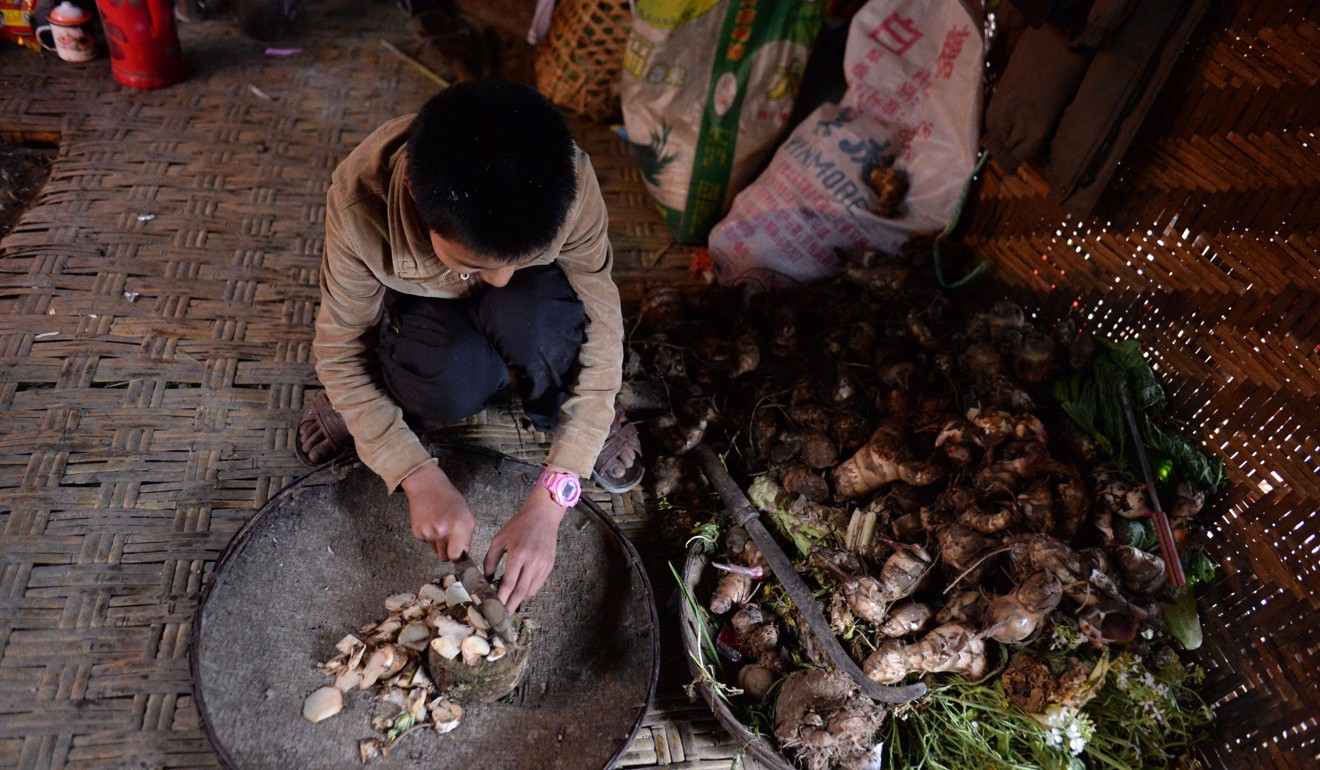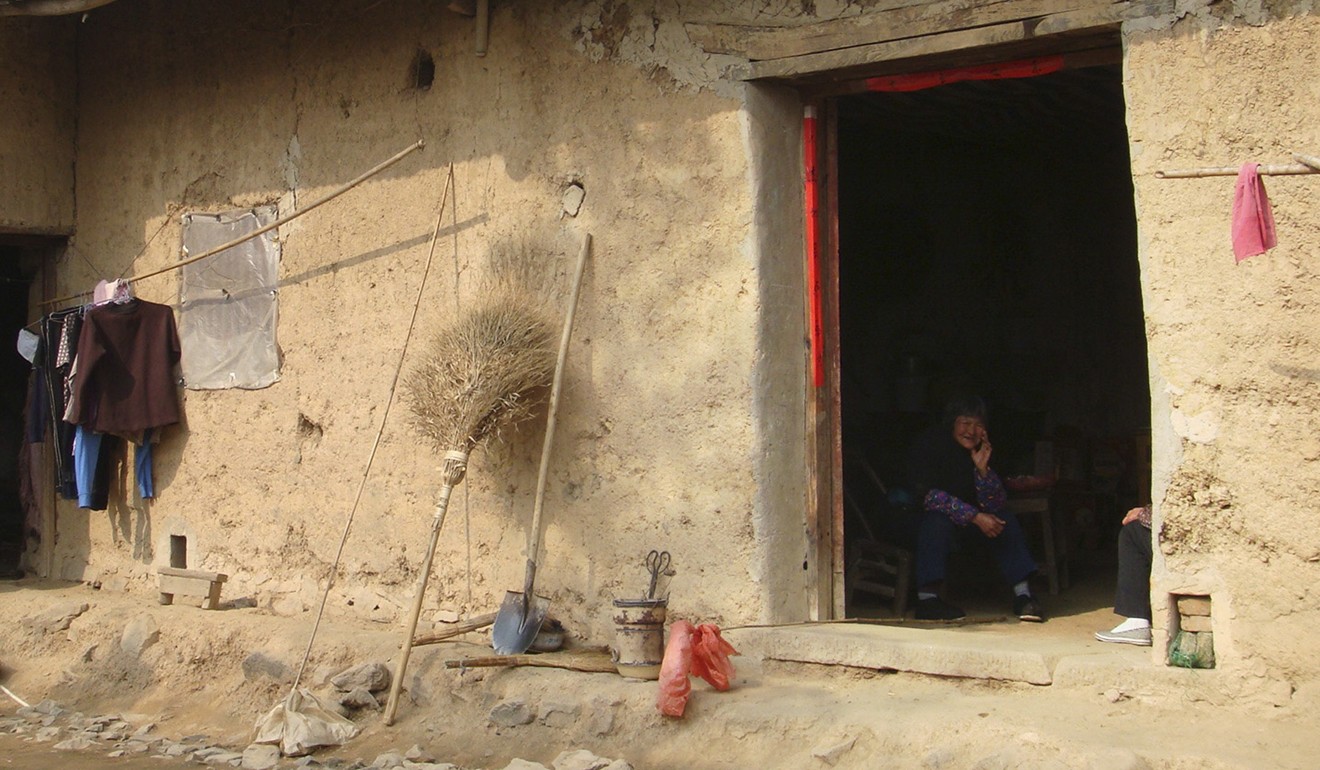
Corrupt officials holding back China’s drive to eliminate poverty
Anti-graft watchdog highlights numerous examples where low-level functionaries have been siphoning off funds meant to help the poor
When President Xi Jinping announced his war against poverty, one of the immediate questions was how to ensure that the money and resources went to the right people.
Revelations by the Communist Party’s top anti-corruption watchdog have shown that this is no easy task.
Among the typical corruption cases the Central Commission for Discipline Inspection (CCDI) disclosed last week were examples of village officials finding creative ways to take a cut from the poverty-alleviation funds coming from higher offices.
In one case, a village official in Guizhou province, which has one of the country’s largest number of people living under the poverty line, embezzled 150,000 yuan (US$22,600) from his village’s poverty funds to run his own business between 2014 and 2016.

Another village official in Shaanxi province was caught asking for mandatory “donations” from poor families.
All families in the village who had been given approval to receive tourism-related small business start-up funds were asked to make a donation of 5,000 yuan.
The 30 families, all living under the national poverty line, only received their funds after paying the sum requested by the official, the report said.
Beijing has pledged to lift all of the country’s citizens above the poverty line by 2020.
The goal was set in the 13th five-year plan released in 2015. Xi had said that alleviating poverty was what he spent the most time on.
However, it has emerged that this campaign is one of those most plagued by corruption, especially at the county or village level.
A report by the Chinese Academy of Social Sciences in January said that among all the complaints filed to the party’s anti-corruption watchdog, more than half of those made at a local level related to poverty alleviation.
In the first six months of last year alone, the anti-graft watchdog punished more than 5,000 cadres around the country for corruption related to poverty alleviation.
Over the past two years, the CCDI has outlined the typical corruption cases related to the campaign against poverty and many of those examples have been breathtaking.
In a case announced last August, a village official at Anhui province withdrew 100,000 yuan from the bank accounts of 24 villagers in 2014.
The official had obtained their bank books when he applied for pension funds on their behalf. All the money withdrawn came from funding allocated to poverty reduction.
The official had spent all the money, with around a fifth of it going on gambling.

Although corruption related to the drive to cut poverty was a priority for China’s anti-graft campaign it was very hard to uproot, said Zhuang Deshui, deputy director of Peking University’s Clean Government Centre.
“Cadres at lower levels of government are very uneven in terms of ethics,” Zhuang said. “Their supervisors at higher offices are sometimes reluctant to look into the loopholes, as they always welcome poverty-related funds that could lighten their financial burden, even though there is trickery in lower-level offices.”

